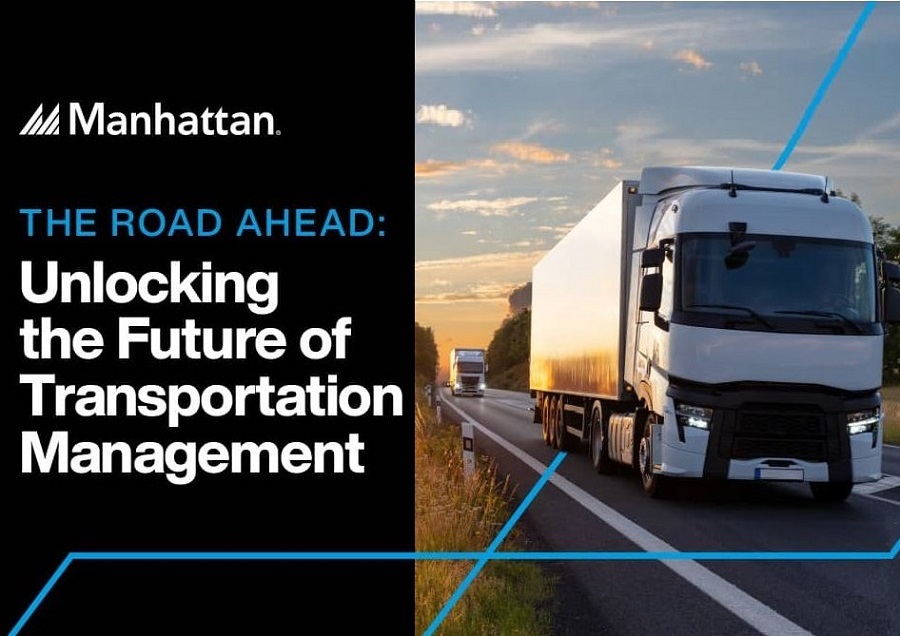Transport Management
Transport Management and Technology, Distribution Management, Freight, Vehicle Routing & Scheduling Software and Load Planning.Autonomous Agents Set to Revolutionise Transportation Management

Manhattan Associates Inc. (NASDAQ: MANH), the global leader in supply chain commerce, today announced the findings of its latest collaboration with international research firm Vanson Bourne.
The global research surveyed 1,450 senior decision-makers* from organisations in manufacturing, retail, wholesale, consumer goods, grocery and food & beverage sectors, across North America, Latin America, Europe and Australia.
“Transportation is the backbone of supply chains, essential to ensuring goods are delivered on time to meet customer expectations,” commented Bryant Smith, director, Transportation Management Systems (TMS) at Manhattan Associates. “Yet, managing transportation is becoming increasingly complex, pressured by demands on shorter fulfilment times, capacity and cost efficiencies, tighter sustainability regulations and the growing necessity for access to end-to-end visibility across all operations,” Smith added.
Fragmented systems: operational visibility and efficiency still challenging
The true value of visibility extends beyond simply accessing operational data: it lies in the ability to address issues highlighted by this information and action operational improvements more quickly and efficiently. Beyond disruptions however, 60% of organisations say that enhancing visibility leads to greater customer satisfaction, through more accurate and timely updates, while 50% cite reductions in transportation costs as a key benefit increased operational visibility.
The AI revolution: excitement but readiness challenges
61% of organisations anticipate fully autonomous Agentic AI, capable of acting independently to achieve specific goals within the next five years, however, only 37% have deeply integrated AI and machine learning in their TMS today.
While many might view five years in the AI space like an eon, the gap between future expectations and current usage is noteworthy given adoption is rarely straightforward: although almost half (48%) said that they already feel very prepared for autonomous agents by 2030, practically every organisation (99%) reported facing, or expecting to face, hurdles, with concerns including skill shortages (49%), integration difficulties (44%) and data quality and availability issues (44%).
With many organisations seemingly well-placed to take advantage of the cost, efficiency and scalability gains afforded by autonomous agents, those organisations on the other side need to rethink their AI strategies otherwise they risk losing significant (and possibly irretrievable) market share to rivals.

Sustainability compliance: a priority and significant pain point
The push for more sustainable transportation is widespread. 69% of organisations say sustainability is either a global mandate or an area of significant pressure, with 62% already implementing Corporate Sustainability Reporting Directive reporting. Navigating complex and shifting compliance requirements remains a global challenge, with sustainability compliance most frequently cited as a constraint expected to impact organisational performance over the next five years. A modern TMS can help to deliver the data visibility and functionality needed to measure progress and demonstrate compliance, vital to ensuring sustainability remains at the forefront of organisational thinking.
Smith summarised: “Modern transportation management demands organisations balance a range of competing priorities and the research clearly illustrates many organisations are still unprepared to meet the challenges of evolving sustainability mandates, expectations around AI and the need for more visible, actionable data insights. Looking ahead to 2030, these demands will intensify, increasing the pressure on organisations to operate transportation operations in smarter more intuitive ways.
“87% of respondents anticipate that challenges in areas such as operational visibility, AI adoption and sustainability compliance will intensify, leaving their current Transportation Management Systems struggling to keep pace. Failure to act now will expose organisations to rising costs, questions over long-term efficacy and the risk of falling short of customer promises,” Smith finished.











